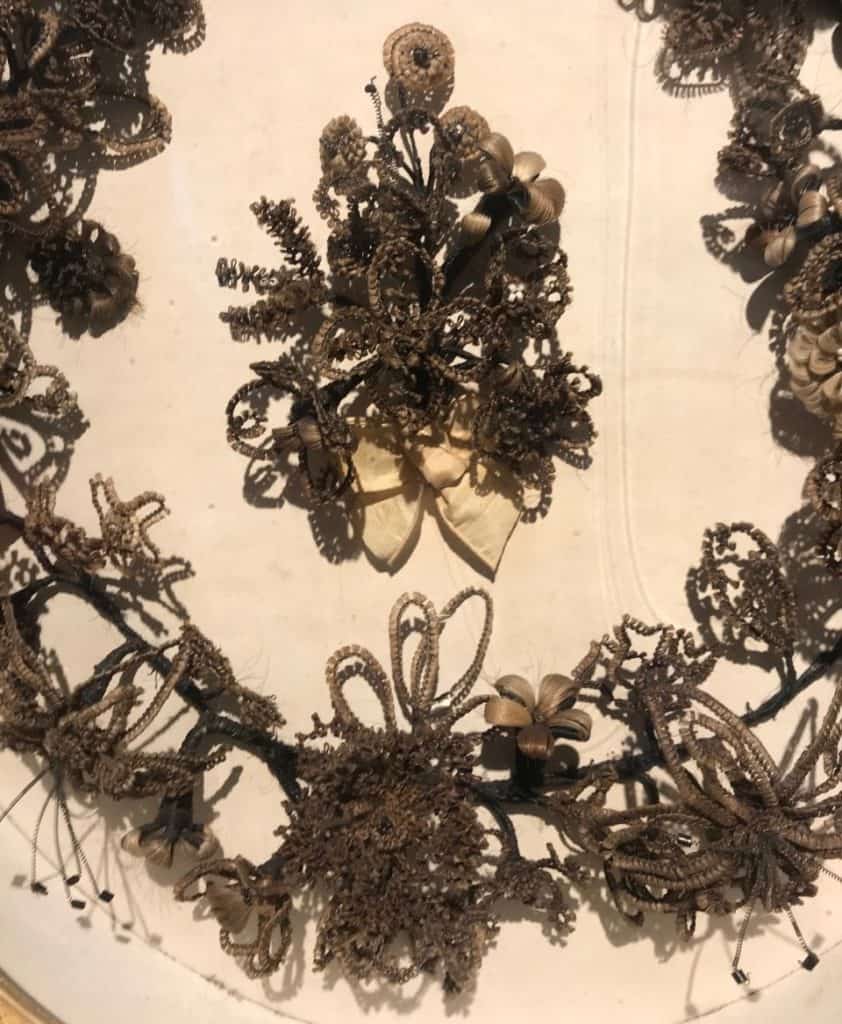
A talk by Professor Ellery Foutch
MIDDLEBURY—The Henry Sheldon Museum presents “Forget Me Not: Memorial Practices in 19th-Century Vermont,” a talk by Professor Ellery Foutch on Thursday, Jan. 28 at 7 p.m.
In this talk presented via Zoom, Professor Foutch will discuss memorial wreaths and mourning objects created in Vermont in the 1800s. Crafted from hair, fabric, and materials considered precious to the deceased, these artifacts offer a window into the lives and emotions of Vermonters of the past. Some of the hairwork examples are from the Sheldon Museum’s collection. Professor Foutch is currently teaching a Middlebury College class on the material culture of hair and its meanings in American culture, past and present, working with students to research objects from Vermont collections and contemporary artists who use hair as a medium.
Ellery Foutch is an assistant professor in the American Studies Department at Middlebury College, where she teaches classes on the art and material culture of the United States. She received her PhD in the History of Art from the University of Pennsylvania in 2011 and has held postdoctoral teaching fellowships at the University of Wisconsin-Madison and The Courtauld Institute of Art (London).
Registration is free, but please consider a donation to the museum. To register, go to the Events page on the Sheldon’s website, henrysheldonmuseum.org.
2021 marks the bicentennial of the August 15, 1821, birth in Salisbury, Vermont, of Henry Luther Sheldon, the museum’s founder. As a boy, Sheldon’s brother introduced him to collecting autographs, and his passion for collecting lasted a lifetime. Sheldon focused his collection on fine Vermont furniture, paintings, documents, household objects, and artifacts that provide a glimpse into Addison County and Vermont’s past. He opened the museum, the oldest community-based museum in the U.S., in 1882. Thanks to his careful collecting of paper records which form the core of the Sheldon’s archives, we live in what one historian has called, “the best-documented community in America.”




